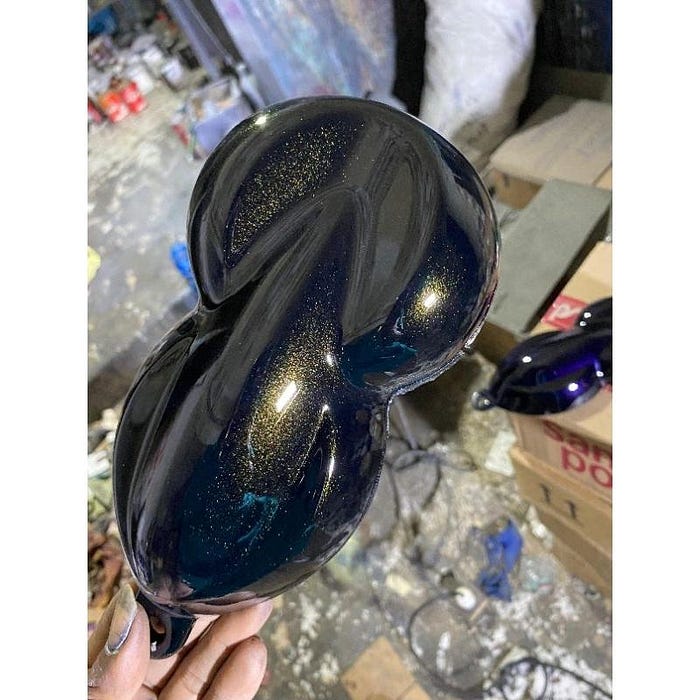During the 18th century artists were beginning to experiment with this medium which was much faster than oil painting, however due to its more fragile nature, not as suitable for really large scale work. Pastels allowed the artist to combine the techniques of drawing with the effects of oil painting and they dried quickly. This new medium was perfectly suited for creating preliminary sketches meant to be turned into larger paintings such as sketching landscapes out of doors. When pastels were first invented few artists worked with them other than for preparatory sketches.
 |
| Portrait of Louis XV as Dauphin, Rosalba Carriera, Museum of Fine Arts, Boston |
As it turned out, oil pastels were also well suited for created a new vibrant style: the 18th century pastel portrait. The soft edges and vivid colorful effects of pastel were perfectly matched to the taste at the time which was transitioning from the Baroque to the Rococo.
The Metropolitan Museum of Art writes of the medium:
“Pastels have always been praised for the freshness of their colors, at once both brilliant and subtle.”1
Rosalba was highly regarded as a portrait painter and sought after by such figures as the young Louise XV, Cardinals, a Countess, other aristocrats and a variety of international travelers and artists. She had a reputation for working quickly and being able to capture both a wonderful likeness and the personality of her subjects.
 |
| Gustavus Hamilton, Second Viscount Boyne, in Masquerade Costume, Rosalba Carriera, 1730–31, Metropolitan Museum of Art |
Venice was a primary destination for anyone who took the "Grand Tour" of Europe, including aristocratic English travelers such as Gustavus Hamilton, pictured above. It is interesting to note that he has chosen to wear a well known variation of the Venetian Carnival mask under his hat (the type of silver brimmed hat which was also worn during Carnival) in the portrait. The portrait would then be a symbol for the time he spent in Venice and would represent that he was well traveled and steeped in local Venetian culture. It became more than a portrait, it represented his status as an educated man who had lived abroad. Rosalba's portrait doesn't focus on the costume, instead showing a sensitively painted work alive with color and texture.
 |
| |
Rosalba's subjects sought her out due to the flattering light that she cast each of them, using a luminous quality that captures each individual. In her paintings she subtly changes from exacting details to soft highlights and from subdued backgrounds to areas of vivid color. Her work transcended the use of pastel on paper to create a new and more engaging type of portrait than traditional oils.
Rosalba's pastel portraits influenced a generation of artists from all over Europe who admired her style such as the French painter Maurice Quentin de La Tour and John Russell from England.
 |
| Self-portrait, Maurice Quentin de La Tour, c-1750-60, Musée de Picardie, Amiens |
French artist Maurice Quentin de La Tour (1704-88) also worked exclusively in pastels. He met Rosalba Carriera when she came to Paris in 1720 when he was still a teenager and apprenticed under Claude DuPouch. After his apprenticeship ended he applied to join the French Royal Academy and was able to exhibit his work in the Salon. While they had different styles and approaches to pastel, the viewer can see the influence of Rosalba's style in the rich tones and textures of his self-portrait pictured above.
 |
| Portrait of George Medley, John Russell, 1777 |
While Rosalba began her career in the Baroque age English painter John Russell (1745-1806) was working entirely during the Rococo. While he was too young to have met Carriera personally, he was definitely influenced by her pastel portraits. Russell too worked solely in pastels and even wrote a book on the medium. There were several different approaches to using pastels and Russell preferred to blend his colors in a similar manner to Rosalba. As she had painted the portraits of many English travelers, Russell was able to see her work in person and even owned a few of her portraits.
Rosalba Carriera painted hundreds of portraits, each created to show the nuances of her subject's personality. Her style was known for its deep and vibrant colors and its rich textures. Like many paintings reproductions do not do her work justice, they must be seen in person to be fully appreciated. Rosalba truly transformed the medium of pastel and expanded its uses from a preparatory medium used to lay out more finished oil paintings to a finished product which was in high demand.
The Metropolitan Museum of Art writes of pastels in the 18th century:
“Pastel, too, afforded the artist a richer interplay between medium and support than oils did. Pastel paintings were commonly executed on blue paper mounted on canvas, not only because this was the thickest paper available in the eighteenth century, but also because of the chromatic advantages it offered as the pigments of the pastel picked up and interacted with the blue background…They offer an invaluable insight into how such tonal complexity was worked up. Unlike oils, which can be mixed on a palette from nine or ten basic pigments, each tone requires a different stick of pastel, with artists making use of hundreds of crayons.”2
1 & 2- The Metropolitan Museum of Art Heilbrunn Timeline of Art History: The Eighteenth Century Pastel Portrait
.jpg)


